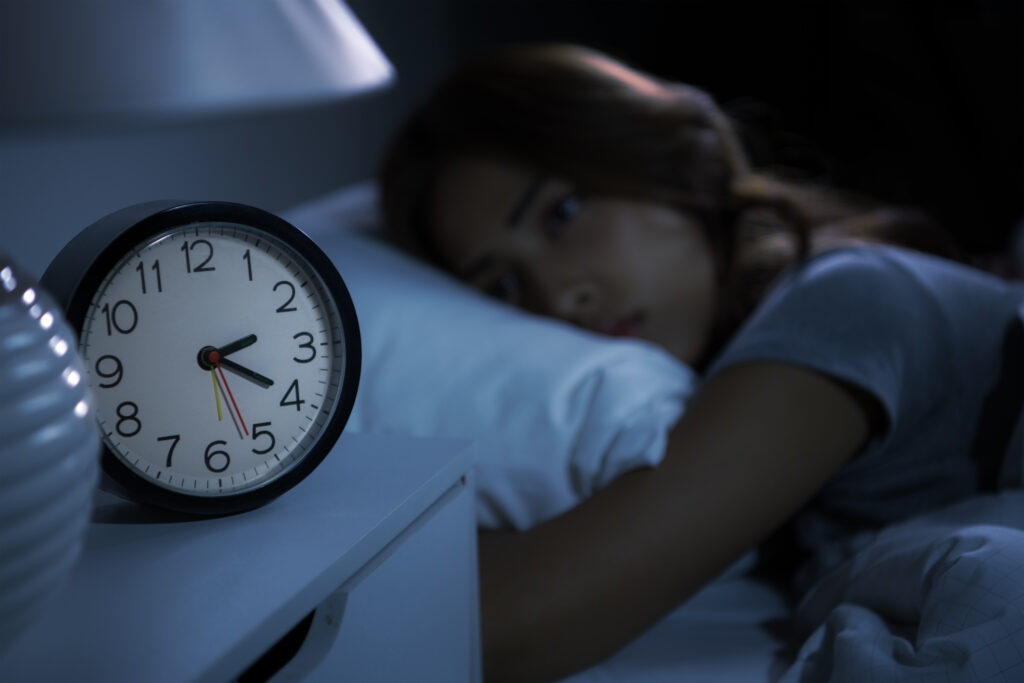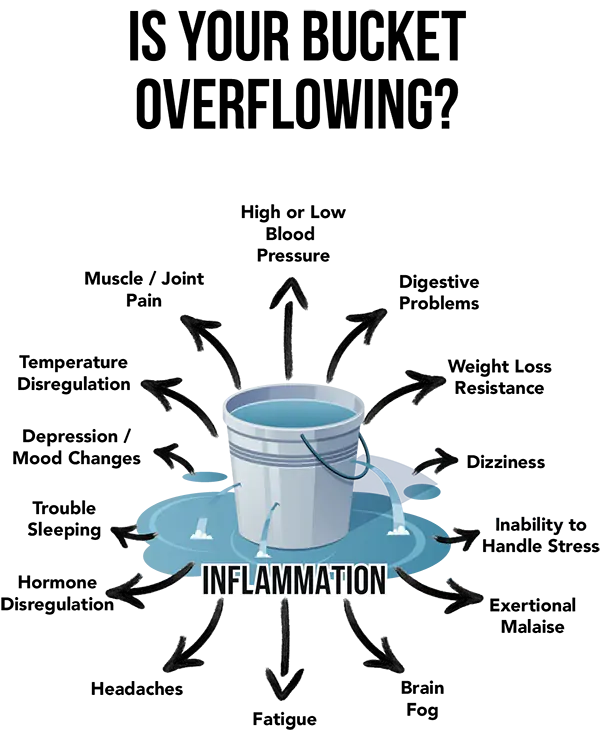Sleep Problems And Cellular Health – What Is The Connection?
There is an undeniable link between sleep problems and cellular health. Sleep is an essential part of our lives, and the quality of our sleep has a direct impact on our cellular health and well-being. On the flip side, our cellular health has an influence over how well we sleep. Getting enough restful sleep is crucial for maintaining physical, mental, and emotional balance. However, with the rise in technology use and busy lifestyles, many people struggle to get adequate sleep.
Sleep Problems And Cellular Health
Recent studies have shown that there is a strong link between sleep problems and cellular health. Our cells are the building blocks of our bodies, responsible for carrying out all essential functions. When we don’t get enough quality sleep, it affects our cellular health in various ways.
One way a lack of sleep impacts our cells is by disrupting their natural repair and maintenance processes. During sleep, our bodies go through a process called autophagy, where old or damaged cells are broken down and replaced with new ones. This process helps keep our cells functioning properly and prevents the accumulation of toxins.1
When we don’t get enough restful sleep, this repair process is interrupted, leading to cellular damage and increased levels of oxidative stress. Oxidative stress occurs when there is an imbalance between free radicals (harmful molecules) and antioxidants in the body. It leads to cell damage and contributes to chronic diseases like cardiovascular disease and neurodegenerative diseases.2

Sleep And The Immune System
Moreover, lack of sleep also affects our immune system’s function, making us more susceptible to illness. Our immune cells rely on quality sleep to replenish and repair, enabling them to fight off infections and other health threats effectively. When we don’t get enough rest, our body’s ability to defend against viruses and bacteria decreases, leaving us vulnerable to various illnesses.3
Sleep And Undesirable Weight Gain
A lack of sleep has been linked to an increase in appetite-regulating hormones, leading to overeating and weight gain. It also affects our body’s ability to regulate blood sugar levels, increasing the risk of insulin resistance.4 5
Sleep Problems And Cellular Health
When someone goes for extended periods without sleep or has disrupted sleep, it activates pathways in the body that help deal with cellular stress. This includes ER (endoplasmic reticulum) and mitochondrial stress. One effect of this is the activation of the unfolded protein response (UPR), which is a series of coordinated processes aimed at restoring protein balance in the body.6
Overall, the link between sleep problems and cellular health highlights the importance of getting enough quality rest each night. Prioritizing good sleep hygiene habits, such as sticking to a consistent sleep schedule, limiting screen time before bed, and creating a comfortable sleeping environment, significantly improve our overall cellular health.
My Experience With Sleep Problems
When I suffered from mysterious health symptoms decades ago, one of those symptoms was sleep disturbances. It was impossible for me to sleep through the night. It was only after I realized that mercury toxicity was behind my health problems that I realized the effect that this heavy metal has on our sleep cycle. This is due to the damaging effect mercury has on cellular function.
Heavy Metals Are Linked To Sleep Problems
I often discuss the overflowing bucket analogy where a combination of different stressors that are chemical, emotional, and physical in nature fill up our buckets and cause mysterious health symptoms. One of those symptoms is not being able to get to sleep or stay asleep.

One specific stressor that could cause our bucket to overflow is cortisol. Cortisol is a hormone produced by the adrenal glands and is often associated with the stress response. Cortisol levels typically rise during the middle of the night which is normal, but if it spikes too high, it leads to a stress response that wakes us up.
One reason why we might experience spikes in cortisol is due to toxins like mercury in the bile. During the middle of the night, bile is dumped into the gut and is generally re-accumulated back in the liver. This bile, known as hepatic biliary sludge contains toxins and if we don’t bind to these toxins to pull them out of the bile, they lead to autointoxication that causes cortisol spikes and other issues.
Mercury affects pituitary, hypothalamus, and all the hormone glands that connect to it. In this case, toxic mercury leads to adrenal dysfunction, causing an unnecessary spike in cortisol.
Additionally, mercury accumulates in the pineal gland. The pineal gland produces melatonin that dictates our sleep cycle. When the pineal gland is affected by mercury, it doesn’t function properly.
If you are waking up in the middle of the night, consider taking gut binders both before you go to sleep and when you wake up at night to pull toxins out of the bile so they don’t result in a cortisol spike. There is also a supplement called Seriphos that supports the adrenal glands. Ideally, take this before bed and again, if you wake up in the middle of the night.
Research has also shown a link between lead exposure and sleep disturbances. For example, one study found that workers exposed to high levels of lead had more difficulty falling asleep and experienced poorer sleep quality compared to those with lower levels of exposure.7
Pesticides Are Linked To Sleep Problems
Pesticides are chemicals used to kill pests and are often found in our food and environment. Exposure to pesticides has been linked to a variety of health issues, including sleep problems.
A study found that children with higher levels of pesticide exposure had more difficulty falling asleep and staying asleep. Additionally, the study also showed a link between prenatal exposure to pesticides and increased sleep disturbances in children.8
Read more about the toxic effects of pesticides.
Air Pollution Is Linked To Sleep Problems
Exposure to air pollution has been linked to numerous health problems, including sleep disturbances. A study found that individuals living in high-polluted areas had a higher prevalence of sleep disorders and decreased sleep quality compared to those living in low-polluted areas. This is because air pollution irritates the respiratory system and disrupts our breathing patterns, leading to sleep disruptions.9

Many Household Products Are Linked To Sleep Problems
Many household products, such as cleaning agents, personal care products, and air fresheners, contain harmful chemicals that affect our health. Some common chemicals found in these products include phthalates, parabens, and triclosan.
Research has shown that exposure to these chemicals disrupt our hormone levels and interfere with our sleep patterns. A study found that individuals with higher levels of phthalates in their urine experienced more difficulty falling asleep and had poorer sleep quality compared to those with lower levels.10
Sleep Problems And Cellular Health – What Is The Connection?
The negative impact of toxins on the health of cellular membranes is a well-established fact. These harmful substances, including heavy metals, instigate inflammation in the cellular membrane, which result in decreased permeability. This hinders the proper intake of vital nutrients and impedes the removal of waste products within cells.11
One side effect of cellular membrane inflammation is the inability to sleep well. This is because inflammation disrupts the release of certain hormones and chemicals responsible for regulating our circadian rhythm and promoting restful sleep.12
Sleep Problems And Hormone Dysfunction
A lack of sleep leads to increased levels of hormones known as glucocorticoids. Additionally, there is a hormone called Dehydroepiandrosterone (DHEA) that works to counteract inflammation and reduce the production of pro-inflammatory cytokines. It has been observed that individuals with sleep disorders tend to have lower levels of DHEA in their bodies.13 14
Follow A Sleep Hygiene Routine
Sleep hygiene routines are crucial for improving sleep quality and in turn, supporting cellular health. Developing a regular sleep routine trains your body to recognize when it’s time to sleep and when it’s time to wake up, leading to faster falling asleep, longer periods of uninterrupted sleep, and feeling more refreshed upon waking.
In addition to maintaining a consistent bedtime, it is equally important to wake up at the same time every day, even on weekends. This helps regulate the body’s internal clock and makes it easier to fall asleep and wake up naturally.
Avoiding caffeine, nicotine, and alcohol before bedtime is also beneficial for sleep quality. Additionally, avoid eating before going to bed. These habits disrupt natural sleep patterns and make it challenging to fall asleep and stay asleep.15 16 17 18
The amount of light exposure we receive throughout the day impacts our sleep-wake cycle. It’s important to adjust lighting accordingly, such as using dimmer lights or wearing an eye mask if you require complete darkness to sleep.19
Limiting screen time before bedtime and staying physically active during the day also contributes to better sleep quality. The blue light emitted from screens suppresses the production of melatonin, making it harder to fall asleep.20
While napping may not directly affect nighttime sleep, it’s best to limit naps to 20-30 minutes and avoid taking them late in the day as they often cause excessive drowsiness and disrupt your regular sleep pattern.21
Managing stress and worries before bed is crucial for a good night’s sleep. This involves practicing relaxation techniques like deep breathing or meditation, writing down thoughts in a journal, or talking to someone you trust about your concerns.
Creating a peaceful and comfortable sleep environment also improves the quality of sleep. This includes controlling noise levels, maintaining a suitable room temperature, and using calming scents like lavender to aid in relaxation. Overall, incorporating these sleep hygiene habits should greatly enhance the quality of your sleep and overall well-being.
The Link Between Sleep Problems And Cellular Health
If a sleep hygiene routine doesn’t help, cellular dysfunction is likely behind your sleep problems. The only way to address this issue is to remove the toxins causing the issue and repair the cellular structures. By following my 5Rs, we are able to regain normal cellular function and sleep normally again.
R1 emphasizes the critical need to remove sources of toxicity from our daily lives in order to effectively detoxify. This means avoiding consumption of toxic foods, household products, pesticides, heavy metals, and air pollution.
R2 discusses the impact of toxin-induced cellular membrane inflammation on hindering detoxification. Inflammation prevents essential nutrients from entering cells and waste products from leaving, leading to a buildup of toxins. This, in turn, leads to problems sleeping.

In R3, we learn about the importance of restoring pathways that have been impaired by toxins, including cellular ATP production. ATP is crucial for cell function and its restoration is essential for effective detoxification. Additionally, with adequate ATP levels, cells are able to produce glutathione, a powerful antioxidant that aids in eliminating toxins.22 23 24
R4 focuses on downregulating cellular membrane inflammation, which does not decrease as expected when toxins are removed from cells. The NO/ONOO cycle maintains inflammation, so specific nutraceuticals are used to reset the cells and reduce inflammation.25
Finally, R5 highlights the significance of supporting methylation through the use of methyl donors which are supplied in the Pompa Program. Toxins disrupt the necessary methyl groups needed for proper detoxification and other crucial processes such as hormone regulation and gene expression. By properly supporting methylation, we activate beneficial genes and suppress harmful ones.26
Overall, these five steps provide a comprehensive approach to effectively detoxify our bodies and finally sleep normally again. By following the steps R1-R5, we take control of our health by removing toxins that are causing harm to our bodies.
To learn even more about the 5Rs, join me in my free webinar or read more about the connection between a lack of sleep and autoimmune conditions.
References
1 Mauri S, Favaro M, Bernardo G, Mazzotta GM, Ziviani E. Mitochondrial autophagy in the sleeping brain. Front Cell Dev Biol. 2022 Aug 24;10:956394. doi: 10.3389/fcell.2022.956394. PMID: 36092697; PMCID: PMC9449320.
2 Davinelli S, Medoro A, Savino R, Scapagnini G. Sleep and Oxidative Stress: Current Perspectives on the Role of NRF2. Cell Mol Neurobiol. 2024 Jun 25;44(1):52. doi: 10.1007/s10571-024-01487-0. PMID: 38916679; PMCID: PMC11199221.
3 Besedovsky L, Lange T, Born J. Sleep and immune function. Pflugers Arch. 2012 Jan;463(1):121-37. doi: 10.1007/s00424-011-1044-0. Epub 2011 Nov 10. PMID: 22071480; PMCID: PMC3256323.
4 Liu S, Wang X, Zheng Q, Gao L, Sun Q. Sleep Deprivation and Central Appetite Regulation. Nutrients. 2022 Dec 7;14(24):5196. doi: 10.3390/nu14245196. PMID: 36558355; PMCID: PMC9783730.
5 Darraj A. The Link Between Sleeping and Type 2 Diabetes: A Systematic Review. Cureus. 2023 Nov 3;15(11):e48228. doi: 10.7759/cureus.48228. PMID: 38050514; PMCID: PMC10693913.
6 Williams JA, Naidoo N. Sleep and Cellular Stress. Curr Opin Physiol. 2020 Jun;15:104-110. doi: 10.1016/j.cophys.2019.12.011. Epub 2019 Dec 31. PMID: 32043041; PMCID: PMC7008961.
7 Liu J, Ghastine L, Um P, Rovit E, Wu T. Environmental exposures and sleep outcomes: A review of evidence, potential mechanisms, and implications. Environ Res. 2021 May;196:110406. doi: 10.1016/j.envres.2020.110406. Epub 2020 Oct 29. PMID: 33130170; PMCID: PMC8081760.
8 Zamora AN, Watkins DJ, Peterson KE, Téllez-Rojo MM, Hu H, Meeker JD, Cantoral A, Mercado-García A, Jansen EC. Prenatal maternal pesticide exposure in relation to sleep health of offspring during adolescence. Environ Res. 2022 Mar;204(Pt A):111977. doi: 10.1016/j.envres.2021.111977. Epub 2021 Aug 29. PMID: 34469742; PMCID: PMC8639673.
9 Liu J, Wu T, Liu Q, Wu S, Chen JC. Air pollution exposure and adverse sleep health across the life course: A systematic review. Environ Pollut. 2020 Jul;262:114263. doi: 10.1016/j.envpol.2020.114263. Epub 2020 Feb 24. PMID: 32443219; PMCID: PMC7877449.
10 Wu X, Liu S, Wen L, Tan Y, Zeng H, Liang H, Weng X, Wu Y, Yao H, Fu Y, Yang Z, Li Y, Chen Q, Zeng Z, Fei Q, Wang R, Jing C. Association between phthalates and sleep problems in the U.S. adult females from NHANES 2011-2014. Int J Environ Health Res. 2024 Apr;34(4):1961-1976. doi: 10.1080/09603123.2023.2196056. Epub 2023 Mar 27. PMID: 36973994.
11 Ammendolia, D.A., Bement, W.M. & Brumell, J.H. Plasma membrane integrity: implications for health and disease. BMC Biol 19, 71 (2021). https://doi.org/10.1186/s12915-021-00972-y
12 Irwin MR, Olmstead R, Carroll JE. Sleep Disturbance, Sleep Duration, and Inflammation: A Systematic Review and Meta-Analysis of Cohort Studies and Experimental Sleep Deprivation. Biol Psychiatry. 2016 Jul 1;80(1):40-52. doi: 10.1016/j.biopsych.2015.05.014. Epub 2015 Jun 1. PMID: 26140821; PMCID: PMC4666828.
13 O’Byrne NA, Yuen F, Butt WZ, Liu PY. Sleep and Circadian Regulation of Cortisol: A Short Review. Curr Opin Endocr Metab Res. 2021 Jun;18:178-186. doi: 10.1016/j.coemr.2021.03.011. Epub 2021 May 5. PMID: 35128146; PMCID: PMC8813037.
14 Nagendra RP, Sathyaprabha TN, Kutty BM. Enhanced dehydroepiandrosterone levels are positively correlated with N3 sleep stage in long-term mindfulness meditation practitioners. Sleep Sci. 2022 Apr-Jun;15(2):179-187. doi: 10.5935/1984-0063.20220039. PMID: 35755903; PMCID: PMC9210555.
15 Drake C, Roehrs T, Shambroom J, Roth T. Caffeine effects on sleep taken 0, 3, or 6 hours before going to bed. J Clin Sleep Med. 2013 Nov 15;9(11):1195-200. doi: 10.5664/jcsm.3170. PMID: 24235903; PMCID: PMC3805807.
16 Jaehne A, Loessl B, Bárkai Z, Riemann D, Hornyak M. Effects of nicotine on sleep during consumption, withdrawal and replacement therapy. Sleep Med Rev. 2009 Oct;13(5):363-77. doi: 10.1016/j.smrv.2008.12.003. Epub 2009 Apr 2. PMID: 19345124.
17 Landolt HP, Roth C, Dijk DJ, Borbély AA. Late-afternoon ethanol intake affects nocturnal sleep and the sleep EEG in middle-aged men. J Clin Psychopharmacol. 1996 Dec;16(6):428-36. doi: 10.1097/00004714-199612000-00004. PMID: 8959467.
18 Chung N, Bin YS, Cistulli PA, Chow CM. Does the Proximity of Meals to Bedtime Influence the Sleep of Young Adults? A Cross-Sectional Survey of University Students. Int J Environ Res Public Health. 2020 Apr 14;17(8):2677. doi: 10.3390/ijerph17082677. PMID: 32295235; PMCID: PMC7215804.
19 Tähkämö L, Partonen T, Pesonen AK. Systematic review of light exposure impact on human circadian rhythm. Chronobiol Int. 2019 Feb;36(2):151-170. doi: 10.1080/07420528.2018.1527773. Epub 2018 Oct 12. PMID: 30311830.
20 Rafique N, Al-Asoom LI, Alsunni AA, Saudagar FN, Almulhim L, Alkaltham G. Effects of Mobile Use on Subjective Sleep Quality. Nat Sci Sleep. 2020 Jun 23;12:357-364. doi: 10.2147/NSS.S253375. PMID: 32607035; PMCID: PMC7320888.
21 Foley DJ, Vitiello MV, Bliwise DL, Ancoli-Israel S, Monjan AA, Walsh JK. Frequent napping is associated with excessive daytime sleepiness, depression, pain, and nocturia in older adults: findings from the National Sleep Foundation ‘2003 Sleep in America’ Poll. Am J Geriatr Psychiatry. 2007 Apr;15(4):344-50. doi: 10.1097/01.JGP.0000249385.50101.67. PMID: 17384317.
22 Kwon DH, Cha HJ, Lee H, Hong SH, Park C, Park SH, Kim GY, Kim S, Kim HS, Hwang HJ, Choi YH. Protective Effect of Glutathione against Oxidative Stress-induced Cytotoxicity in RAW 264.7 Macrophages through Activating the Nuclear Factor Erythroid 2-Related Factor-2/Heme Oxygenase-1 Pathway. Antioxidants (Basel). 2019 Apr 1;8(4):82. doi: 10.3390/antiox8040082. PMID: 30939721; PMCID: PMC6523540.
23 Pizzorno J. Glutathione! Integr Med (Encinitas). 2014 Feb;13(1):8-12. PMID: 26770075; PMCID: PMC4684116.
24 Pastore A, Federici G, Bertini E, Piemonte F. Analysis of glutathione: implication in redox and detoxification. Clin Chim Acta. 2003 Jul 1;333(1):19-39. doi: 10.1016/s0009-8981(03)00200-6. PMID: 12809732.
25 Pall M. L. (2013). The NO/ONOO-cycle as the central cause of heart failure. International journal of molecular sciences, 14(11), 22274–22330. https://doi.org/10.3390/ijms141122274
26 Dhar GA, Saha S, Mitra P, Nag Chaudhuri R. DNA methylation and regulation of gene expression: Guardian of our health. Nucleus (Calcutta). 2021;64(3):259-270. doi: 10.1007/s13237-021-00367-y. Epub 2021 Aug 16. PMID: 34421129; PMCID: PMC8366481.
Disclaimer: All rights reserved. Information provided is for general purposes and not intended to provide medical advice, diagnosis, or treatment. Consult your healthcare professional for medical concerns. About Dr. Pompa




